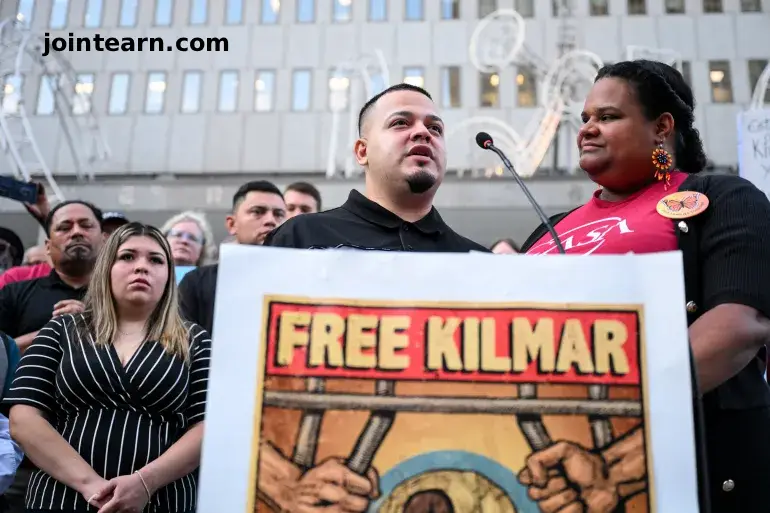
Washington, D.C., October 27, 2025 — A US federal judge has ordered the Trump administration to provide formal assurances that it will not deport Kilmar Abrego Garcia, a Salvadoran migrant, to Liberia while an injunction blocking his removal remains active. The case has drawn widespread criticism from immigrant rights groups and legal experts who say the deportation plan is unlawful and politically motivated.
Judge Questions Motives Behind Deportation Plan
District Judge Paula Xinis issued the request on Monday, pressing government lawyers to explain why officials are seeking to deport Abrego Garcia to a country he has no connection to.
“Any insight you can shed on why we’re continuing this hearing when you could deport him to a third country tomorrow?” Xinis asked, referring to Costa Rica, where Abrego Garcia has been offered legal residency and protection from further deportation.
The judge’s remarks followed an ICE notice filed last week announcing plans to send Abrego Garcia to Liberia, a West African nation with which he has no family, cultural, or national ties.
Background: Wrongful Deportation and Legal Battle
Abrego Garcia, a longtime US resident originally from El Salvador, was wrongfully deported in March 2025 in violation of a 2019 federal court order that explicitly barred his removal. After being returned to the United States under a judicial order in June, he was promptly arrested and charged with human smuggling in Tennessee — a case he is now seeking to have dismissed.
The Trump administration has alleged, without proof, that Abrego Garcia is associated with the MS-13 gang, a claim his lawyers and advocates have denounced as a baseless smear meant to justify his deportation.
Lawyers Condemn ‘Cruel and Unconstitutional’ Move
Attorney Simon Sandoval-Moshenberg, who represents Abrego Garcia, called the government’s latest deportation plan “cruel and unconstitutional.”
“Sending Kilmar to Liberia — a country he has never set foot in — violates due process and basic human rights,” he said. “It’s political retribution, plain and simple.”
Advocacy groups argue that deporting migrants to unrelated “third countries” is part of a broader Trump-era policy designed to circumvent asylum protections. They warn that many of these nations, including Liberia and Uganda, have poor human rights records and are unsafe for displaced migrants.
Asylum Application and Political Implications
Abrego Garcia has since applied for asylum in the United States, citing credible fears of persecution if returned to El Salvador. His case has become a flashpoint in debates over the Trump administration’s immigration enforcement policies, which have drawn international scrutiny for alleged violations of international refugee law.
The Biden administration previously rolled back similar third-country deportation agreements, but the policy was reinstated under Trump’s second term, allowing US authorities to deport migrants to nations with which they have no prior connection.
Broader Context and Reactions
Human rights organizations, including Amnesty International and CASA, have condemned the administration’s handling of the case, calling it emblematic of systemic abuse within the US immigration system.
“This is not just about one man — it’s about the erosion of judicial authority and the weaponization of deportation,” said Lydia Walther Rodríguez of CASA, who accompanied Abrego Garcia to an ICE field office in Baltimore earlier this year.
Legal analysts say the outcome of this case could set a precedent for how courts handle third-country deportations and executive power limits under immigration law.


Leave a Reply